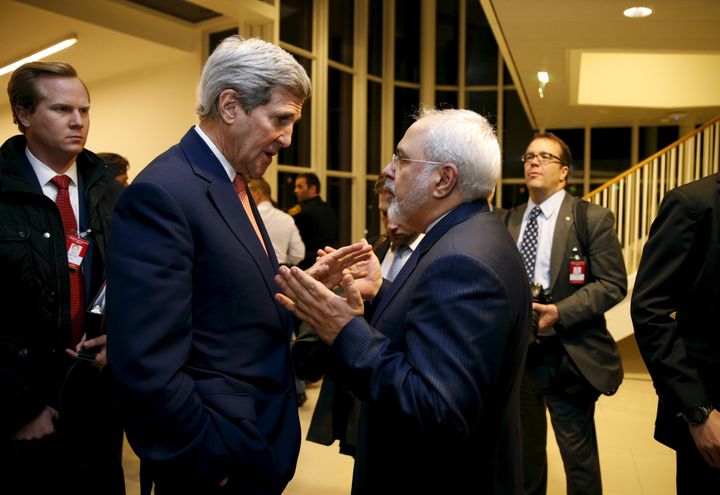
The Iranian government on Thursday condemned a U.S. Supreme Court ruling issued earlier this week that sided with thousands of victims of terrorism who turned to the courts for compensation after winning judgments against Iran.
Hossein Jaber Ansari, a spokesman for Iran's foreign ministry, compared the decision -- which would allow victims to collect billions in assets from Iran -- to "theft."
"It is like stealing Iran's money and we condemn it," Ansari said, according to Reuters. He added that the ruling "is incompatible with international laws."
Iran's foreign minister, Mohammad Javad Zarif, said during a visit to New York on Thursday that his country won't abide by the ruling.
"The U.S. knows this well, too, that whatever action it takes with respect to Iran’s assets will make it accountable in the future, and it should return these assets to Iran," Zarif said, according to a report on Iran's state television.
In 2012, Congress passed a law that instructed courts to award nearly $2 billion in frozen assets that Iran held in a New York bank to families and survivors of the 1983 Beirut bombings and other acts of terrorism the U.S. blamed on Iran.
Bank Markazi, Iran's central bank, challenged the law all the way to the Supreme Court, claiming it violated the Constitution's separation of powers because Congress and the president were intruding on the judiciary's independence.
In a 6-to-2 vote, the Supreme Court rejected the Iranian bank's argument, asserting that "Congress acted comfortably within the political branches' authority over foreign sovereign immunity and foreign-state assets."
But Chief Justice John Roberts, who already seemed skeptical about the law's design during oral arguments, dissented forcefully, all but accusing the other two branches of preordaining the outcome of the case.
"Congress has decided this case by enacting a bespoke statute tailored to this case that resolves the parties’ specific legal disputes to guarantee [the victims'] victory," Roberts wrote.
At a briefing Thursday, State Department spokesman John Kirby disagreed with Iran's characterization of the ruling. The court's decision was "not unexpected," he said, and was "consistent" with the Obama administration's support for the legislation in 2012.
Asked about what the ruling might mean for the future of the 2015 nuclear agreement with Iran, a State Department official told The Huffington Post in a statement that the decision bears "no relation" to the commitments the U.S. and Iran have made under the deal.
"We have consistently supported compensation for the families in this case," the official said. "We believe the court decision is consistent with U.S. international obligations. This case has been the subject of robust U.S. judicial proceedings, including by our highest court."
Go Ad-Free — And Protect The Free Press
Already contributed? Log in to hide these messages.
As fate would have it, Zarif met with Secretary of State John Kerry at the United Nations on Tuesday -- a day before the Supreme Court ruling -- precisely to discuss the banking obstacles the Islamic republic faces on the road to implementing the nuclear agreement.
"We are both working at making sure … the Iran agreement is implemented exactly as it was meant to be and all the parties to that agreement get the benefit that they are supposed to get out of the agreement," Kerry said, according to The Wall Street Journal.
